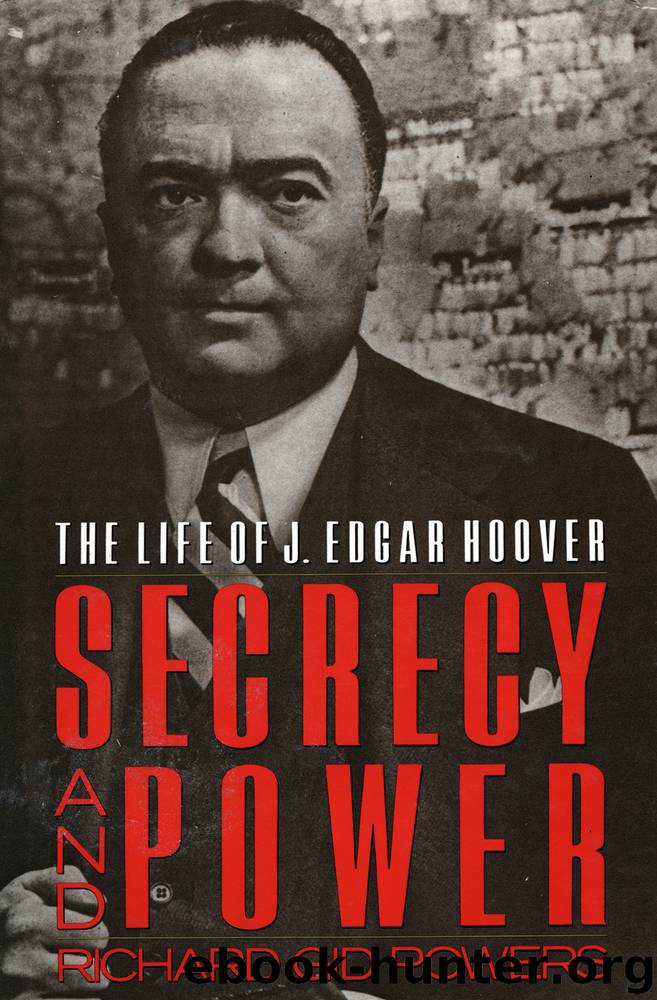Secrecy and Power by Richard Gid Powers

Author:Richard Gid Powers
Language: eng
Format: epub
Publisher: Simon & Schuster
Published: 2020-02-03T16:00:00+00:00
* * *
Hoover’s appearance before HUAC in 1947 had signaled his break with Truman; now, in 1953, he made another sensational appearance before Congress, even more unmistakably partisan than before, to signal his loyalty to the new administration. The issue was the Truman administration’s handling of the Harry Dexter White espionage case.
In November 1953, Attorney General Brownell, perhaps stung by the recent Democratic victories in the off-year elections, and certainly feeling the pressure of Senator McCarthy’s charges of espionage at the army electronics research laboratories at Fort Monmouth, New Jersey, decided to make an issue of the difference between the Eisenhower security program and the Truman administration’s cavalier attitude toward spy cases (“red herrings”). After clearing his plans with the president, Brownell charged that Truman had promoted Assistant Secretary of the Treasury Harry Dexter White to “a more important position” as executive director of the International Monetary Fund despite Hoover’s reports about White’s “spying activities for the Soviet Government.”15
The Democratic party exploded in indignation, particularly when the new Republican chairman of HUAC, Harold Velde, followed up on Brownell’s charges by subpoenaing the former president. Truman rejected the subpoena on the grounds of the separation of powers, but went on national television to deny Brownell’s story. He claimed that he had seen Hoover’s report on White, but too late to stop the Senate from confirming the nomination. Truman went further and said he had promoted White only because he had an understanding with Hoover that this would help the FBI with its investigation.16
This left Truman open to a devastating counterattack. On November 17, Brownell and Hoover appeared before Senator Jenner’s subcommittee. Hoover later let it be understood that Brownell had ordered him to appear, but Brownell clearly remembers that Hoover “volunteered.” Hoover put the nasty little political brawl in the context of the “conflict with the godless forces of communism [who]… distort, conceal, misrepresent, and lie to gain their point. Deceit is their very essence…. [T]o a Communist there are no morals except those which further the world revolution directed by Moscow.”17
Hoover denied there had been any arrangement between him and Truman; he claimed White’s promotion had even hampered his investigation. He also contradicted Truman’s statement that White had been surrounded with persons of proven loyalty, noting that one of White’s close IMF associates was later removed as a security risk in December 1952. Although Hoover later denied that he had impugned Truman’s loyalty, clearly he had done just that.
The Eisenhower administration had convinced Hoover of its sincerity, and now Hoover was going to be as useful to Eisenhower as he had been to Roosevelt, and for much the same reason. Roosevelt and Eisenhower showed Hoover they shared his values and respected him. They gave him important and satisfying assignments, and backed him when he needed support. Truman and his liberal backers were consigned to the hated category of “pseudo-liberals,” anti-anti-Communists whose toleration for Communists made Communist subversion possible. Drew Pearson reported that the Washington consensus was that Hoover had “been waiting a long time” to get even with the former president.
Download
This site does not store any files on its server. We only index and link to content provided by other sites. Please contact the content providers to delete copyright contents if any and email us, we'll remove relevant links or contents immediately.
| Military | Political |
| Presidents & Heads of State | Religious |
| Rich & Famous | Royalty |
| Social Activists |
Waking Up in Heaven: A True Story of Brokenness, Heaven, and Life Again by McVea Crystal & Tresniowski Alex(37808)
Empire of the Sikhs by Patwant Singh(23084)
We're Going to Need More Wine by Gabrielle Union(19046)
Hans Sturm: A Soldier's Odyssey on the Eastern Front by Gordon Williamson(18590)
Leonardo da Vinci by Walter Isaacson(13336)
The Radium Girls by Kate Moore(12028)
Tools of Titans by Timothy Ferriss(8393)
Educated by Tara Westover(8053)
How to Be a Bawse: A Guide to Conquering Life by Lilly Singh(7486)
Permanent Record by Edward Snowden(5846)
The Last Black Unicorn by Tiffany Haddish(5635)
The Rise and Fall of Senator Joe McCarthy by James Cross Giblin(5280)
Promise Me, Dad by Joe Biden(5153)
The Wind in My Hair by Masih Alinejad(5095)
A Higher Loyalty: Truth, Lies, and Leadership by James Comey(4960)
The Crown by Robert Lacey(4814)
The Iron Duke by The Iron Duke(4354)
Joan of Arc by Mary Gordon(4109)
Stalin by Stephen Kotkin(3965)
